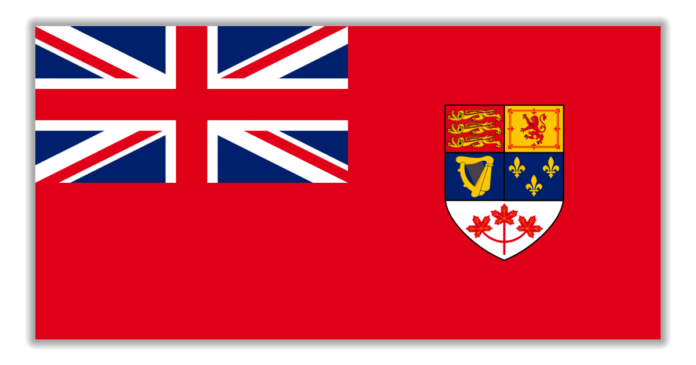A booklet made for school children that calls the Red Ensign flag a hate symbol and identifies the Conservative Party as a target of “infiltration” by racists was approved by Cabinet yesterday as a taxpayer-funded project.
“This new resource will be delivered through workshops in schools across the country and it will help raise awareness with students,” Diversity Minister Ahmed Hussen told reporters. The booklet would help “teach core values to our kids,” he said.
According to Blacklock’s Reporter, Hussen approved a $268,400 grant to fund the guide Confronting and Preventing Hate in Canadian Schools. The guide, written by the Canadian Anti-Hate Network (CAHN), also warns students to be wary of classmates who speak fondly of Donald Trump.
CAHN is a federally-subsidized group that earlier received an identical $268,400 grant to operate its website. Hussen says it is “an organization that I respect very much.”
In a chapter on “hate promoting symbols,” the booklet names the Red Ensign flag as offensive even though it was used as Canada’s national symbol until 1965.
“Its usage denotes a desire to return to Canada’s demographics before 1967 when it was predominantly white,” the booklet says.

The booklet refers to the Conservative Party twice as a group whose members include bigots and “groypers” defined as a “loose collection of young white nationalists.” Without elaborating, the guide writes that “they sometimes attempt to infiltrate mainstream Conservative political parties.”
“In 2020 McMaster University Conservatives were scrutinized by allowing members with overly bigoted beliefs and ties,” wrote CAHN. They also cited their own website as a source. Common “conservative campus groups” were also named.
No other political parties were named in the guide.
The guide also asks children to challenge other students who speak in favour of “problematic” public office holders. “Sometimes educators and students will find themselves in the position of requiring an immediate response to a student in class who invokes a bigoted ideology,” it says.
“While these situations should be treated carefully they need to be addressed as they happen,” the guide writes. “These incidents can range from mild to severe and each will require its own approach depending on the situation. Examples: A student argues in favour of a problematic politician or policy, e.g. Trump’s wall, in a classroom discussion.”
In addition, children should be aware of classmates who invoke “a free speech issue” in political conversations. Citing free speech was among “common defenses of hate propaganda,” said the guide.
Bernie Farber, chair of the Canadian Anti-Hate Network said the booklet would lead a whole campaign to educate young people and “fight and win against hate.”
“The point of this free toolkit is to help parents, educators and the community identify and intervene when a young person is being groomed and recruited by a white supremacist movement before it is too late,” said Farber. “It’s not just a free toolkit. The Canadian Anti-Hate Network is launching a whole education program.”





















